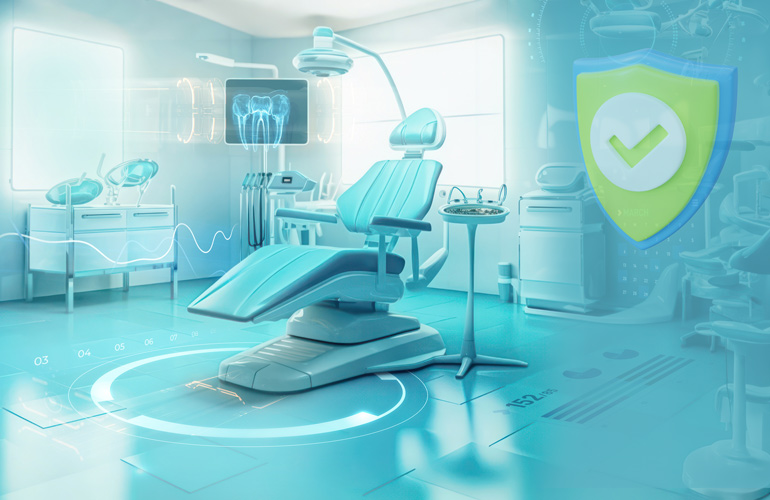Cybersecurity Survival Guide for Modern Dental Practices

Healthcare cyberattacks increased 239% from 2018-2023, with dental practices comprising 22% of breaches916. A single ransomware incident costs practices an average of $183,000 in downtime and recovery16.
Next-gen systems like Darktrace for Healthcare use machine learning to baseline normal network activity, detecting anomalies like unusual EHR access patterns. In 2024 trials, these tools reduced false positives by 68% compared to rule-based systems9.
Zero-trust architectures now protect 43% of dental PMS systems, requiring multi-factor authentication for all access attempts. Cloud-based solutions with end-to-end encryption reduced data breach risks by 81% in a 2025 ADA study16.
.png)
The article examines whether dental patients are ready to embrace AI in their care — and finds that most are open to it when trust, transparency, and convenience are prioritized. Patients welcome AI that speeds scheduling, verifies insurance, and improves diagnostic accuracy, but they insist on human oversight and data security. Trust hinges on clear disclosure, HIPAA compliance, and seamless integration across channels like phone, text, email, and chat. Tools like Denny AI reflect this balance: a HIPAA-compliant virtual receptionist that answers 24/7, verifies insurance instantly, and syncs with 100+ practice management systems to cut missed calls and improve access. The takeaway: dental patients will accept AI when it feels transparent, human-guided, and genuinely helpful — not cold or confusing — turning automation into better, faster, and more trusted care.

.png)
The article explores how empathy transforms voice AI from a functional tool into a true extension of a dental front office. It explains that while machines can’t feel, they can recognize emotion, urgency, and confusion — responding with warmth, clarity, and action. In dentistry, this “practical empathy” leads to higher booking rates, better patient trust, and less staff stress. Solutions like Denny AI demonstrate how empathetic design — natural tone, inclusive communication, and seamless handoffs — turns missed calls into meaningful patient connections, all while staying HIPAA-compliant and deeply integrated with dental systems.

.png)
Dental AI is moving from headlines to hygiene rooms, and patients are cautiously open—if trust, transparency, and convenience come first. People are comfortable with AI that speeds access and reduces friction (24/7 answers, fast scheduling, instant insurance checks, omnichannel communication) and they want clear disclosure when AI is involved. Confidence rises when clinicians retain oversight, review AI outputs, and explain decisions; it drops when technology feels cold, opaque, or appears to replace human judgment. Privacy is non-negotiable: patients expect HIPAA-grade safeguards, audit trails, and minimal data sharing. On the clinical side, FDA-cleared imaging tools that highlight caries or measure bone levels can improve accuracy and understanding—so long as a dentist makes the final call and documents that review. Operationally, practices see the quickest wins by piloting AI at the front desk to cut missed calls, verify benefits in seconds, and turn inquiries into booked appointments, then measuring results and iterating. The playbook is simple: disclose how AI helps, define its limits, protect PHI, keep humans in the loop, and invite questions. Practices that pair small pilots with clear training will set expectations for modern dental care—and show patients that AI isn’t replacing the human touch; it’s making it easier to feel it at every visit.
